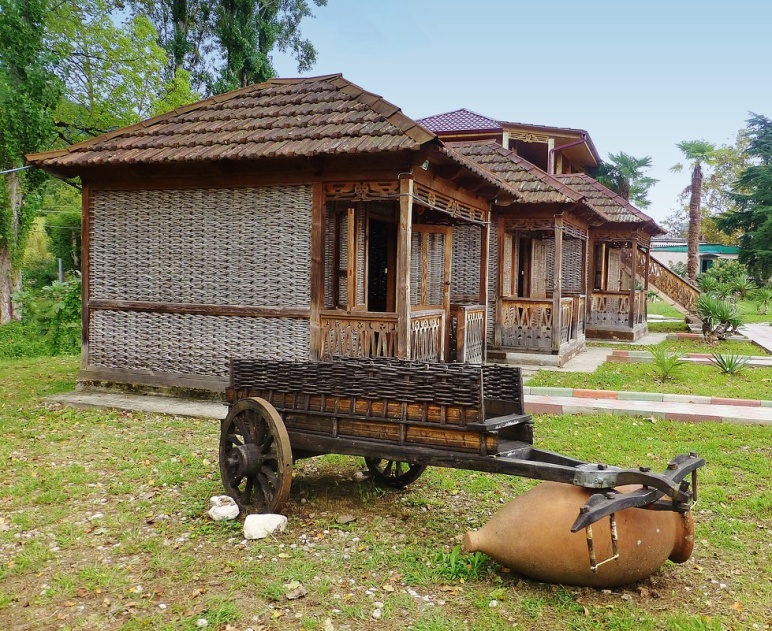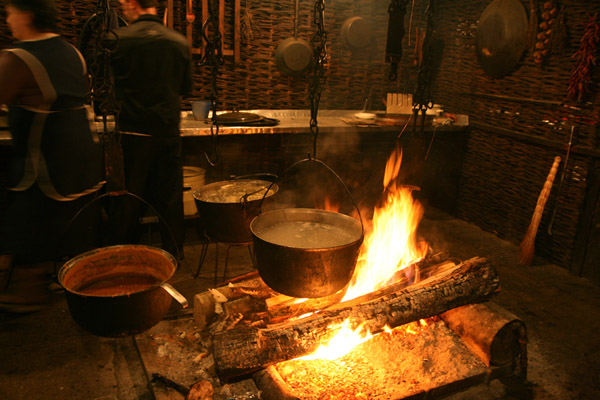


Domestic Unit
Women and younger people occupy clearly subordinate positions within the household: they serve food while others eat first, keep quiet, and do as they are told. More generally, people like to spend time with others of the same gender and generation, and there is a strong, assumed distance between such groups, which is often simply respectful. Guests, regardless of age and gender, are treated with the sacred deference shown to older men and are seated with them at table. As across the Caucasus, the coming of guests—and in fact any holiday, special occasion, or even ordinary get-together—is celebrated with a ritualistic supper party. Over wine, hosts and guests go through rounds of toasts, honoring each other and getting better acquainted. Providing hospitality in this way—the food, the wine, and the words—is a matter of family pride, pleasure, and solidarity.
On first entering the family by marriage, brides are relative strangers and are treated with a different, but related, kind of formality—sometimes even hostility. A bride may not speak to her father-in-law until he decides that sufficient time has elapsed; a shorter period of silence is enjoined with the mother-in-law. A bride also avoids using the first names of her husband's siblings (especially older ones); she gives them nicknames, which then tend to persist for that bride. Husband and wife are also restrained in showing their affection for each other in public. A year is supposed to elapse before any children are born to a couple.
From all people a certain stoicism and self-reliance is sometimes demanded. Wounded people try not to cry; women hide that they are pregnant and, formerly, gave birth on their own; children obey their elders even when what is asked of them is difficult. Children are swaddled, and expected behavior is instilled by censure and praise (though corporal punishment is not excluded). Parents (especially fathers) are not supposed to show much concern or affection for their own children in public. Instead, the members of the extended family care for each other's children, building a wide, thick network of relations. The extended family, particularly the joint fraternal one, retains its conceptual and organizational importance even if in the towns brothers can no longer build their homes around a family plot. Because of the clustering of brothers' families, division of land was traditionally not a problem; even today the parents' house passes to the youngest son.












